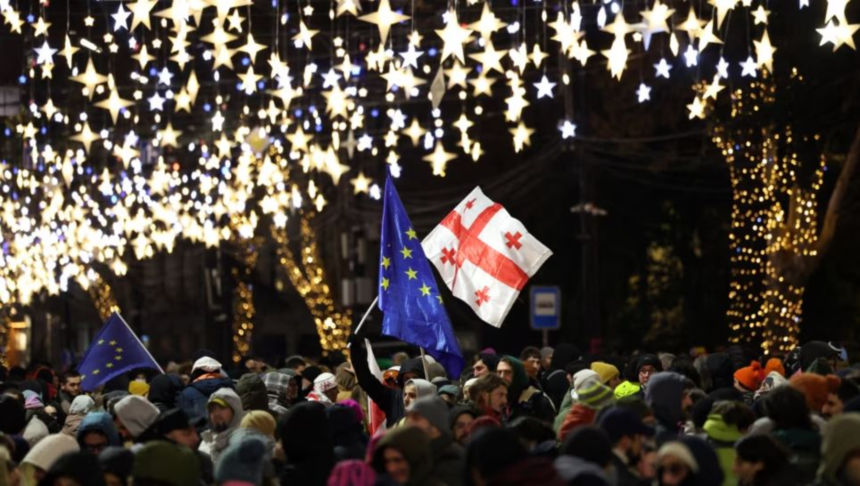The United States and the United Kingdom have imposed sanctions on Georgia’s Minister of Internal Affairs, Vakhtang Gomelauri, and other senior officials within the Ministry in response to their alleged role in the violent suppression of journalists, opposition figures, and anti-government protesters.
The United States also sanctioned Mirza Kezevadze, the deputy head of the special forces department at Georgia’s Ministry of Internal Affairs, the U.S. Treasury Department announced on December 19.
The Treasury Department stated that these actions were taken in coordination with the UK, which on December 19 imposed sanctions on Gomelauri and four other Ministry officials for suspected human rights violations.
A U.S. Treasury Department official explained that the reasons cited by both governments for imposing the sanctions were similar.
“After the elections in Georgia, key officials in the Ministry of Internal Affairs were involved in brutally suppressing their own people, including deliberately targeting journalists and using violence,” said Bradley T. Smith, acting Under Secretary for Terrorism and Financial Intelligence.
The Treasury Department also reported that any assets owned by Gomelauri and Kezevadze in U.S. jurisdiction have been frozen.
In addition to Gomelauri, the UK imposed sanctions on Deputy Minister of Internal Affairs Aleksandre Darakhvelidze, Sulkhan Tamazashvili, Zviad Kharazishvili, and Mileri Lagazauri, according to a statement from the British government.
Thousands of people again demonstrated in Tbilisi on the night of December 19. This marked the 22nd consecutive day of protests against the government’s decision to effectively halt talks on the country’s EU membership.
Protesters have questioned the legitimacy of the victory of the Georgian Dream party in the October elections.
The protests intensified after Georgian Prime Minister Irakli Kobakhidze announced that Tbilisi had suspended negotiations with Brussels on EU membership until 2028.
Georgia’s pro-European President, Salome Zurabishvili, stated that the October 26 elections were manipulated with Moscow’s help and pledged that she would not step down, even when her successor—whom protesters call the head of an “illegal parliament”—is sworn in on December 29, as reported by REL.
Zurabishvili condemned the “brutal attacks on the Georgian people and media,” likening the suppression by authorities to “Russian-style repression.”
The protests have been violently dispersed, activists have been arrested, and opposition politicians and media representatives have been attacked.
Georgia was granted EU candidate status in December 2023, and according to polls, most Georgians support the country’s accession to the European Union.







